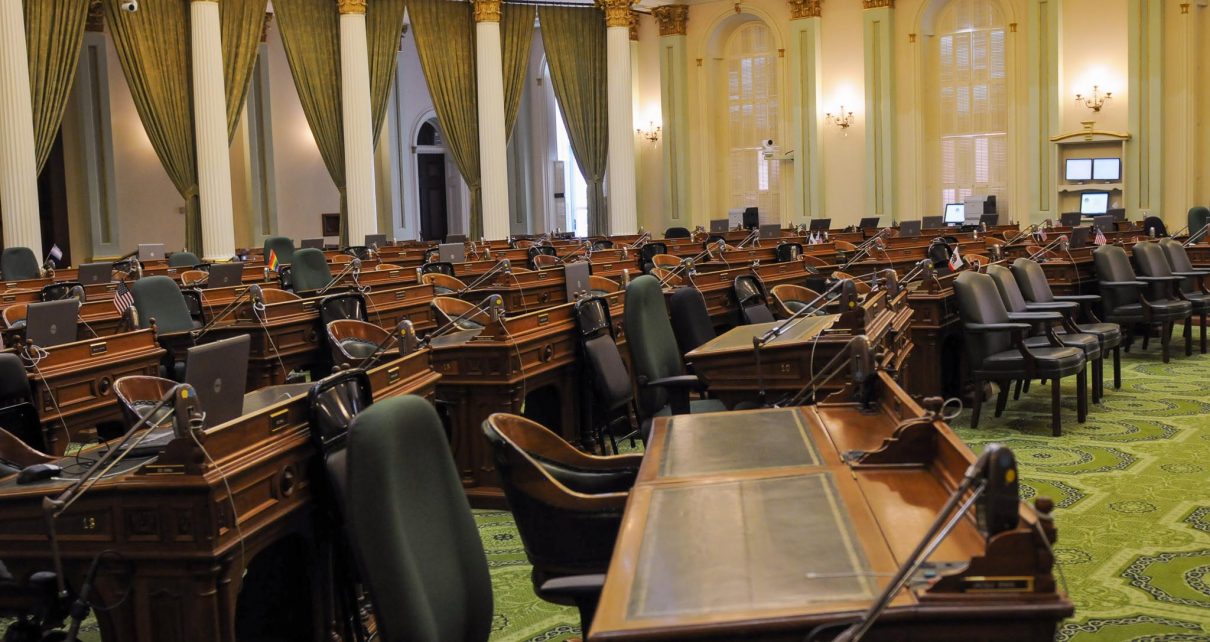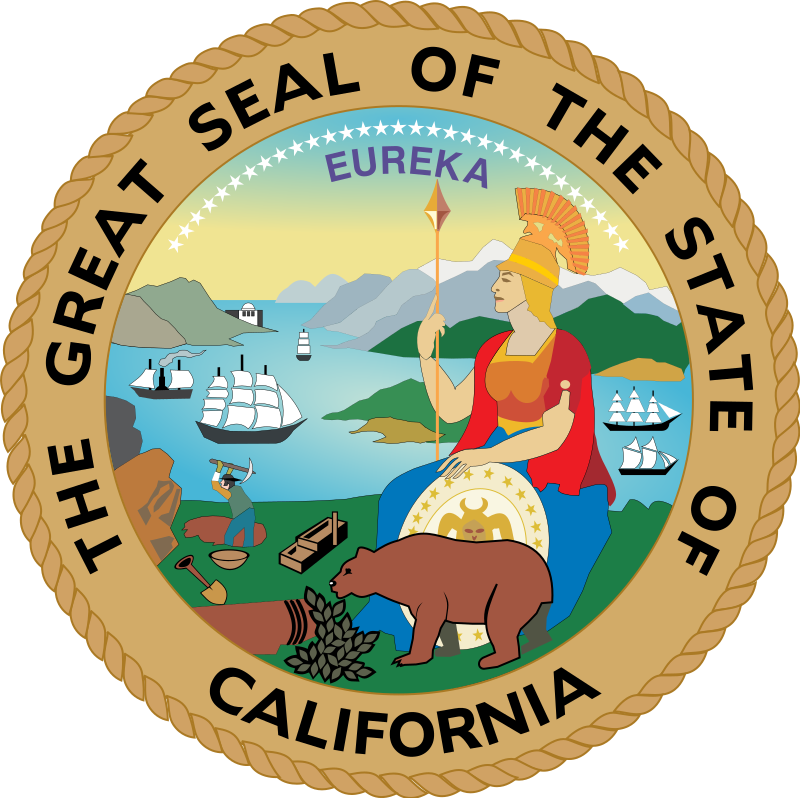
California State Assembly. (Photo: Kevin Sanders for California Globe)
California’s General Prohibitions Against Conflicts of Interest
To prohibit public employees from personally benefitting at the expense of the public interest
By Chris Micheli, January 21, 2022 8:34 am
California has extensive conflict of interest provisions applicable to state officials. They are contained in Government Code Title 9, Chapter 7, Article 1, and include General Prohibitions that are set forth in Sections 87100 to 87105, which were added in June 1974 by Proposition 9.
Section 87100 prohibits a public official at any level of state or local government from making, participate in making, or in any way attempting to use the public official’s position to influence a governmental decision in which the official knows or has reason to know the official has a financial interest.
Section 87100.1 provides that a registered professional engineer or licensed land surveyor who renders professional services as a consultant to a state or local government, either directly or through a firm in which the consultant is employed or is a principal, does not have a financial interest in a governmental decision where the consultant renders professional engineering or land surveying services independently of the control and direction of the public agency and does not exercise public agency decision-making authority as a contract city or county engineer or surveyor.
Section 87101 allows any public official from making or participating in the making of a governmental decision to the extent the official’s participation is legally required for the action or decision to be made. The fact that an official’s vote is needed to break a tie does not make the official’s participation legally required for purposes of this section.
Section 87102.5 provides that certain remedies apply to any Member of the Legislature who makes, participates in making, or in any way attempts to use the Member’s official position to influence any of the following governmental decisions in which the Member knows or has reason to know that the Member has a financial interest:
- Any state governmental decision, other than any action or decision before the Legislature, made in the course of the Member’s duties.
- Approval, modification, or cancellation of any contract to which either house or a committee of the Legislature is a party.
- Introduction as a lead author of any legislation that the Member knows or has reason to know is nongeneral legislation.
- Any vote in a legislative committee or subcommittee on what the Member knows or has reason to know is nongeneral legislation.
- Any rollcall vote on the Senate or Assembly floor on an item which the Member knows is nongeneral legislation.
- Any action or decision before the Legislature in which all of the following occur:
-
- The Member has received any salary, wages, commissions, or similar earned income within the preceding 12 months from a lobbyist employer.
-
- The Member knows or has reason to know the action or decision will have a direct and significant financial impact on the lobbyist employer.
-
- The action or decision will not have an impact on the public generally or a significant segment of the public in a similar manner.
- Any action or decision before the Legislature on legislation that the Member knows or has reason to know will have a direct and significant financial impact on any person, distinguishable from its impact on the public generally or a significant segment of the public, from whom the Member has received any compensation within the preceding 12 months for the purpose of appearing, agreeing to appear, or taking any other action on behalf of that person, before any local board or agency.
In addition, this section defines the following terms: “Any action or decision before the Legislature”; “Financial interest”; “Legislation”; and, “Nongeneral legislation.”
Pursuant to Section 87102.5, a Member of the Legislature has reason to know that an action or decision will have a direct and significant financial impact on a person with respect to which disqualification may be required if either of the following apply:
- With the knowledge of the Member, the person has attempted to influence the vote of the Member with respect to the action or decision.
- Facts have been brought to the Member’s personal attention indicating that the action or decision will have a direct and significant impact on the person.
Note that the above prohibitions do not apply to a vote on the Budget Bill as a whole, or to a vote on a consent calendar, a motion for reconsideration, a waiver of any legislative rule, or any purely procedural matter. In addition, a Member of the Legislature has reason to know that legislation is nongeneral legislation if facts have been brought to the Member’s personal attention indicating that it is nongeneral legislation.
Written advice given to a Member of the Legislature regarding the Member’s duties under this section by the Legislative Counsel has the same effect as advice given by the FPPC if both of the following apply:
- The Member has made the same written request based on the same material facts to the FPPC for advice as to the Member’s duties under this section, as the written request and facts presented to the Legislative Counsel.
- The FPPC has not provided written advice pursuant to the Member’s request prior to the time the Member acts in good faith reliance on the advice of the Legislative Counsel.
Section 87102.6 defines the term “Nongeneral legislation,” which means legislation as to which both of the following apply:
- It is reasonably foreseeable that the legislation will have direct and significant financial impact on one or more identifiable persons, or one or more identifiable pieces of real property.
- It is not reasonably foreseeable that the legislation will have a similar impact on the public generally or on a significant segment of the public.
Section 87102.8 prohibits an elected state officer from making or participating in the making of, or use the officer’s official position to influence, any governmental decision before the agency in which the elected state officer serves, where the officer knows or has reason to know that the officer has a financial interest.
An elected state officer knows or has reason to know that the officer has a financial interest in any action by, or a decision before the agency in which the officer serves where either of the following occur:
- The action or decision will have a direct and significant financial impact on a lobbyist employer from which the officer has received any salary, wages, commissions, or similar earned income within the preceding 12 months and the action or decision will not have an impact on the public generally or a significant segment of the public in a similar manner.
- The action or decision will have a direct and significant financial impact on any person, distinguishable from its impact on the public generally or a significant segment of the public, from whom the officer has received any compensation within the preceding 12 months for the purpose of appearing, agreeing to appear, or taking any other action on behalf of that person, before any local board or agency.
Section 87103 provides that a public official has a financial interest in a decision if it is reasonably foreseeable that the decision will have a material financial effect, distinguishable from its effect on the public generally, on the official, a member of the official’s immediate family, or on any of the following:
- Any business entity in which the public official has a direct or indirect investment worth $2,000 or more.
- Any real property in which the public official has a direct or indirect interest worth $2,000 or more.
- Any source of income, except gifts or loans by a commercial lending institution made in the regular course of business on terms available to the public without regard to official status, aggregating $500 or more in value provided or promised to, received by, the public official within 12 months prior to the time when the decision is made.
- Any business entity in which the public official is a director, officer, partner, trustee, employee, or holds any position of management.
- Any donor of, or any intermediary or agent for a donor of, a gift or gifts aggregating $250 or more in value provided to, received by, or promised to the public official within 12 months prior to the time when the decision is made.
For purposes of this section, indirect investment or interest means any investment or interest owned by the spouse or dependent child of a public official, by an agent on behalf of a public official, or by a business entity or trust in which the official, the official’s agents, spouse, and dependent children own directly, indirectly, or beneficially a 10-percent interest or greater.
Section 87103.5 provides that a retail customer of a business entity engaged in retail sales of goods or services to the public generally is not a source of income to an official who owns a 10-percent or greater interest in the entity if the retail customers of the business entity constitute a significant segment of the public generally, and the amount of income received by the business entity from the customer is not distinguishable from the amount of income received from its other retail customers.
Section 87103.6 provides that any person who makes a payment to a state agency or local government agency to defray the estimated reasonable costs to process any application, approval, or any other action, including but not limited to, holding public hearings and evaluating or preparing any report or document, does not by reason of the payments be a source of income to a person who is retained or employed by the agency.
Section 87104 prohibits a public official of a state agency, for compensation, from acting as an agent or attorney for, or otherwise represent, any other person by making any formal or informal appearance before, or any oral or written communication to, the official’s state agency or any officer or employee thereof, if the appearance or communication is for the purpose of influencing a decision on a contract, grant, loan, license, permit, or other entitlement for use.
Section 87105 requires a public official who holds an office specified who has a financial interest in a decision must, upon identifying a conflict of interest or a potential conflict of interest and immediately prior to the consideration of the matter, do all of the following:
- Publicly identify the financial interest that gives rise to the conflict of interest or potential conflict of interest in detail sufficient to be understood by the public, except that disclosure of the exact street address of a residence is not required.
- Recuse the public official’s own self from discussing and voting on the matter, or otherwise acting in violation of law.
- Leave the room until after the discussion, vote, and any other disposition of the matter is concluded, unless the matter has been placed on the portion of the agenda reserved for uncontested matters.
- A public official may speak on the issue during the time that the general public speaks on the issue.
Note that this section does not apply to Members of the Legislature.
- Should Interpretive Guidance Be Included in California Legislation? - April 28, 2024
- Legislative Intent Does Not Equate to a Mandate - April 27, 2024
- Frequently Asked Questions about State Agency Ethics Training - April 26, 2024




